During the summer, the days are longer and I have a lighter workload, making evenings the perfect time to watch a movie. Because scanning through a streaming service is often demoralising, I have compiled some selections below of independent films that I enjoyed and (mostly) found through my own research and wandering.1 The range here is significant, but in addition to all being narrative films, common threads may include: young adult ennui, dry humour, a political edge, and/or distinctive style. You’ll also see that several are MUBI titles—if you’re interested in a 30 day free trial, you can use my link here (and in doing so, gift me 30 days free in return <3).
Between the Lines (1977), dir. Joan Micklin Silver
Before it left MUBI, I caught Between the Lines, a languid American indie about an alternative leftist paper in Boston caught between the radicalism of the 60s and the commercialism of the 80s. In addition to being a love letter to scrappy young journalists, it’s also quite funny—Jeff Goldblum plays a zany rock critic who at one point fights a conceptual artist. This feels like an older cousin to a film like Empire Records, which longtime readers may recall is one of my all-time favourites.
Come Back to the 5 and Dime, Jimmy Dean, Jimmy Dean (1982), dir. Robert Altman
It’s difficult to explain all of the things that this film is: a made-for-TV movie directed by the great Robert Altman, a Broadway play staged for the screen, a bottle episode, a comedy and melodrama, a vehicle for Cher’s charisma, an early example of queer/trans representation in cinema (that, while imperfect, is also at times reverent and affirming), and a story of a group of women who once belonged to a small town Texas fan club for James Dean who reunite on the 20th anniversary of his death.2 I loved the performances from the three leads—since this is based on a play, it’s very dialogue driven—but also what Altman does with the space of the store where the whole thing is set, using mirrors and windows to shift between the 50s and the 70s. It’s also…. (wink) not available for free…. on YouTube….
Janet Planet (2024), dir. Annie Baker
When my friend Winnie saw this at Berlinale in the winter, they told me “Tia, you’re going to love Janet Planet!” I have been hunting it down since its US release in June (it didn’t get a theatrical drop in Canada, but slipped quietly onto VOD a few weeks ago) and prepped by reading some of Annie Baker’s plays in the meantime (for the uninitiated, Baker may be new to cinema but she is both a Pulitzer winning playwright and sister-in-law to Greta Gerwig and Noah Baumbach). 6th grader Lacey’s world—with her co-dependent mother and her string of boyfriends—may be small, but her inner life is mobile and vast. This movie felt so much like summers as a child: slow, rambling, sometimes sad, full of new things to see, understand, and imagine. I want to revisit it soon because I think there is a lot more going on than can be accounted for in a single viewing.
Alma’s Rainbow (1994), dir. Ayoka Chenzira
This 90s coming-of-age classic has been on my list for a longtime. I loved how much attention Chenzira gives to beauty: to the pleasures of dressing up (or dressing down), to dance and performance, to building home and community, to the difficult and beautiful bonds between women. So many different paths of womanhood and sexuality are explored here and we get to see Rainbow, a teen in Brooklyn, try them on with admirable fearlessness. Her house feels like a giant dress-up box, and this is an appropriate stage for coming-of-age and performing multiple selves in all of their glory!
Tu Dors Nicole/You’re Sleeping, Nicole (2014), dir. Stéphane Lafleur
This black-and-white Québec film is clearly inspired by Frances Ha, though its protagonist Nicole has less to be wistful about—in the film, she returns to the suburbs after university, and her summer days are filled with aimless wandering, unfulfilling work, shoplifting, and parties with her brother and his band. I loved the scenes where Nicole wakes up before the others and walks around the house or the yard in total silence, experiencing a strange other world not usually available to consciousness; this is sometimes what impending adulthood feels like, watching a world take shape while you stand on its edge. There is also a memorable surreal twist at the end and a great use of whale recordings.
Dìdi (2024), dir. Sean Wang
I didn’t expect to mention Gerwig three times in a row here, but the influence of Lady Bird on Dìdi is quite apparent: it’s a 2000s coming-of-age story set in the Bay Area involving tension and misunderstanding between a mother and (spiky, ungrateful, ultimately charming) child, it features a mournful wind ensemble on the score, and even shares certain editing choices with Gerwig’s 2017 solo debut (cast off = braces off). That doesn’t mean Dìdi isn’t original in its own right—particularly exciting is how Wang renders life on the Internet as a teen, including early Facebook and IM culture, as well as Asian-American masculinity, and California skate culture. It’s a film that moves effortlessly between moments that wound and those that will make you gasp, cringe, or giggle.
Fremont (2023), dir. Babak Jalali
This unsuspecting indie gem has quite the supporting cast (Jeremy Allen-White, Gregg Turkington, Boots Riley) but it is largely anchored by a quiet and endearing performance by Anaita Wali Zada, who plays a 27 year old translator and refugee from Afghanistan now working at a fortune cookie factory. Beautiful black-and-white cinematography, wry humour, and quiet acts of tenderness make this a really special film (particularly the ending). Like Dìdi, it’s also set in Fremont, California—it was a very strange coincidence when I watched both films within 24 hours of each other.
Like Twenty Impossibles (2003), dir. Annemarie Jacir
This short film (available on Netflix) chronicles the efforts of a Palestinian film crew to travel from the West Bank to Jerusalem for a shoot, resulting in frustration, surveillance, and harassment at every checkpoint. In other words, it’s a film about the impossibility of filmmaking, but also the impossibility of quotidian necessities like driving and accessing cities.3 Jacir vividly renders the absurdity of borders and identity documents—one of the soldiers stopping them is from Miami, and one of the crew has Israeli citizenship and thus is not allowed to be in the West Bank, even though he is Palestinian. Jacir also uses the division of sound and image to impart the embodied, disorienting life of borders and occupation. Readers in New York may be interested in a retrospective of Annemarie Jacir and her sister Emily’s work running this September at Anthology Film Archives.
I Have Electric Dreams (2022), dir. Valentina Maurel
This portrait of a teen girl growing up in San Jose, Costa Rica is tough and intense. 16 year old Eva is frustrated by living with her mother and so goes to stay with her poet father, a drifter who struggles with anger and self-harm. Eva’s admiration for her father is undercut by her fear of him, and so the film follows the painful ways in which disavowed recognition comes to the surface. This is twinned by her emerging awareness of sexuality in scenes that are variously glorious (there is an incredible feat of editing and music involving an encounter with a woman in a gorilla suit) and stinging (adults in her father’s life don’t have the boundaries that they should). The film is best when it is cinematically ambitious, but it also shines as a subversive example of queer ‘international’4 cinema in a market that prefers traumatic stories about coming-out or forbidden romance.
The German Sisters / Marianne and Juliane (1981), dir. Margarethe von Trotta
In this West German drama, two sisters split hairs over radical politics: Juliane is a journalist and organizer for abortion rights, while Marianne is stridently militant. When Marianne is arrested, Juliane must reconcile her simultaneous feelings of love, guilt, frustration, and betrayal as she attempts to care for her in prison and fight for her survival. What could already be compelling as a straightforward political film is enhanced by Von Trotta’s smart directorial choices: shutters on a vacation home closed after news of a death, the blending of two sister’s faces across reflective glass, and flashbacks to a religious childhood soaked in red light. (Fun fact: in 1994, Ingmar Bergman cited The German Sisters as one of his favourite films.)
New selections like Janet Planet and Dídi are the obvious exceptions.
Thank you to my friend Iman for the suggestion.
I’m using ‘impossible’ here to indicate impediments, distractions, frustrations, and time-killers, not to suggest that there isn’t a rich tradition of Palestinian filmmaking—which there absolutely is—but to highlight the threats (both literal and existential) to making any kind of art under such conditions.
I’m using this vocabulary facetiously: terms like foreign film, world cinema, etc. reinforce Western centrism. Queer stories in particular are used to make the Global South appear intolerant and the West as sympathetic and inclusive—I think I Have Electric Dreams might be signalling another possibility.





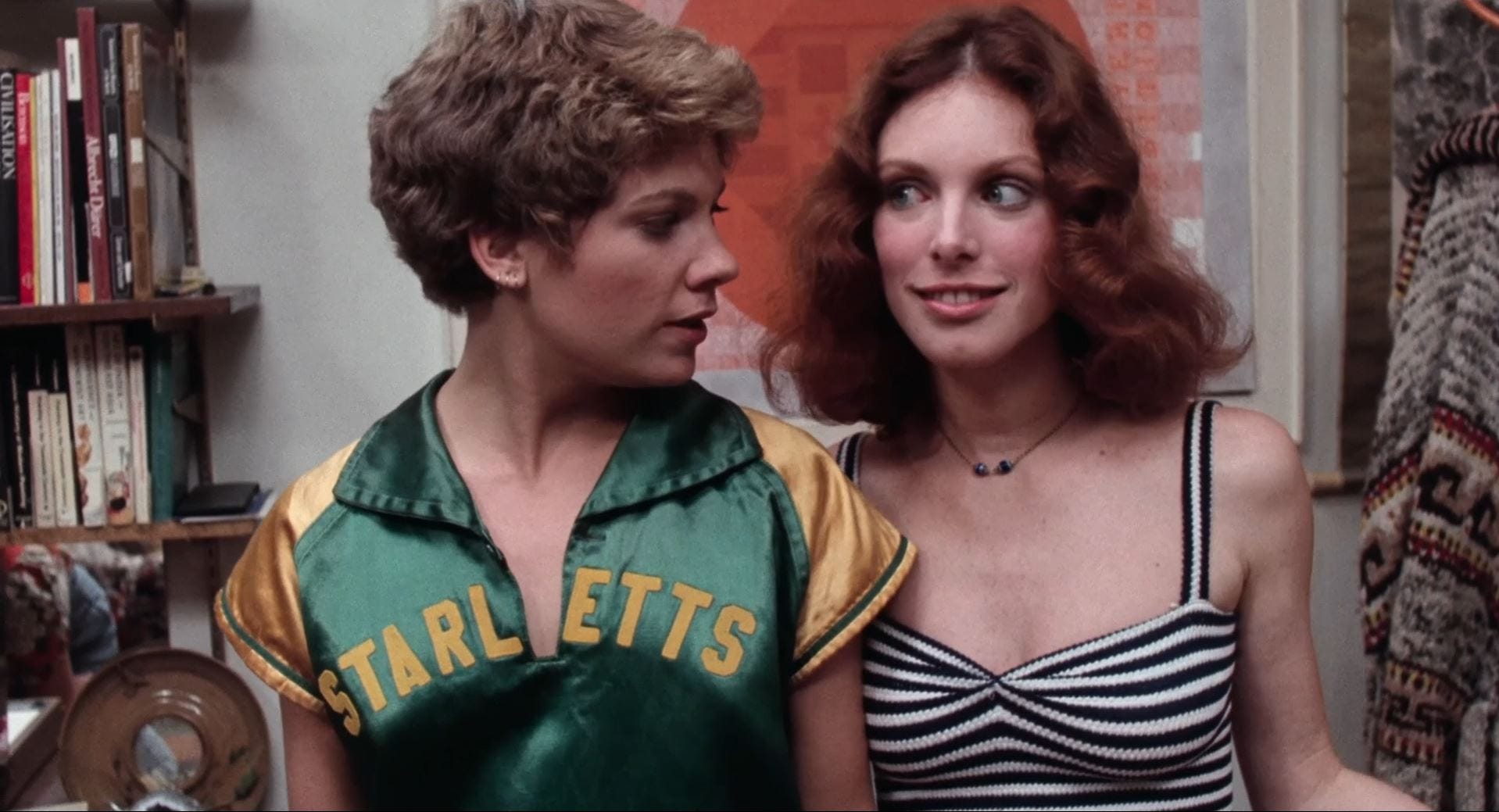
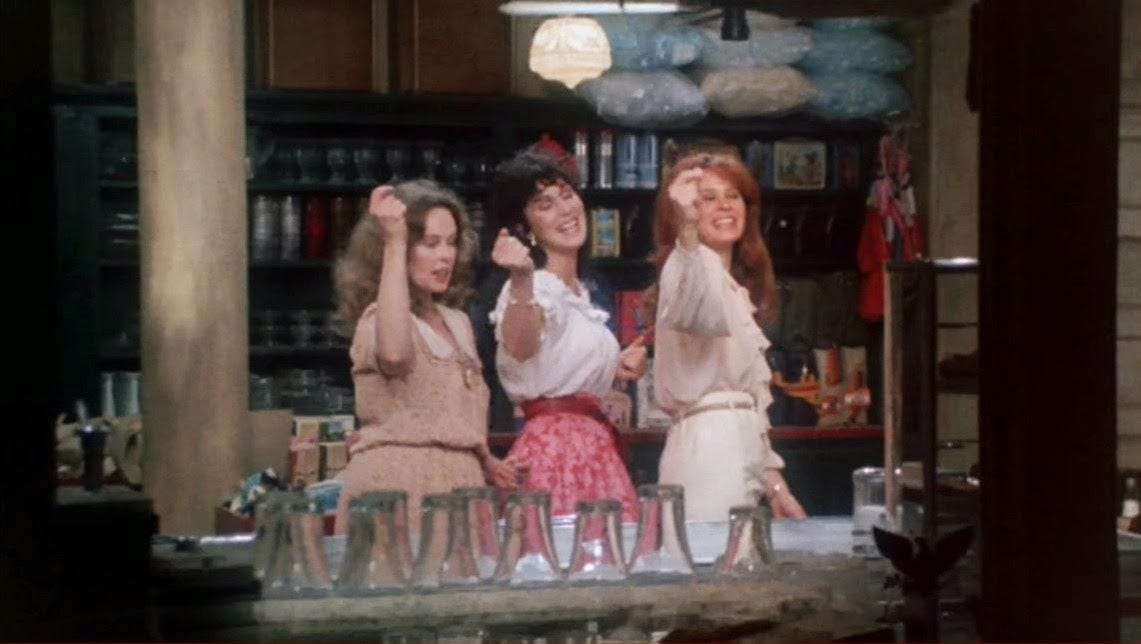
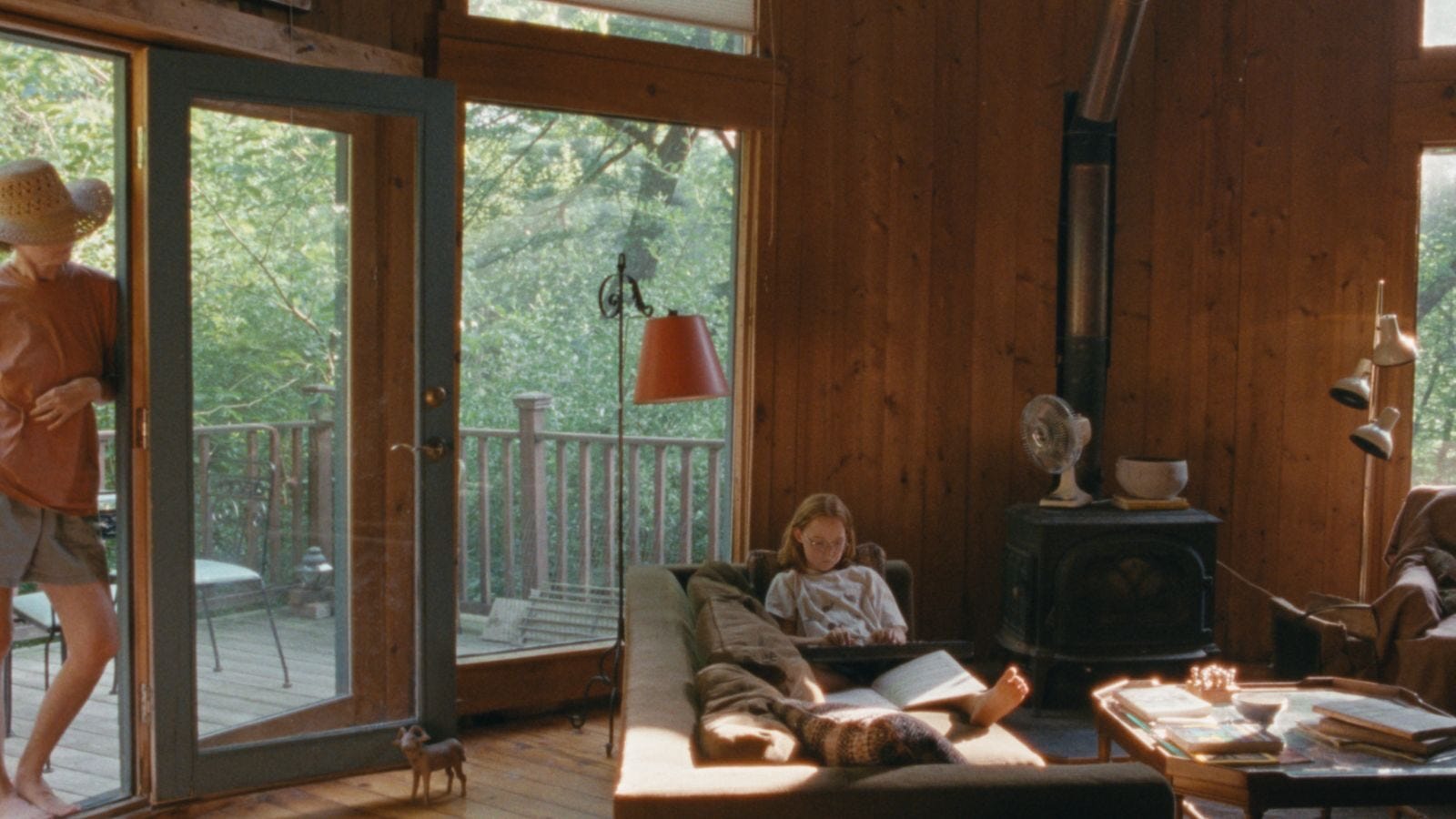
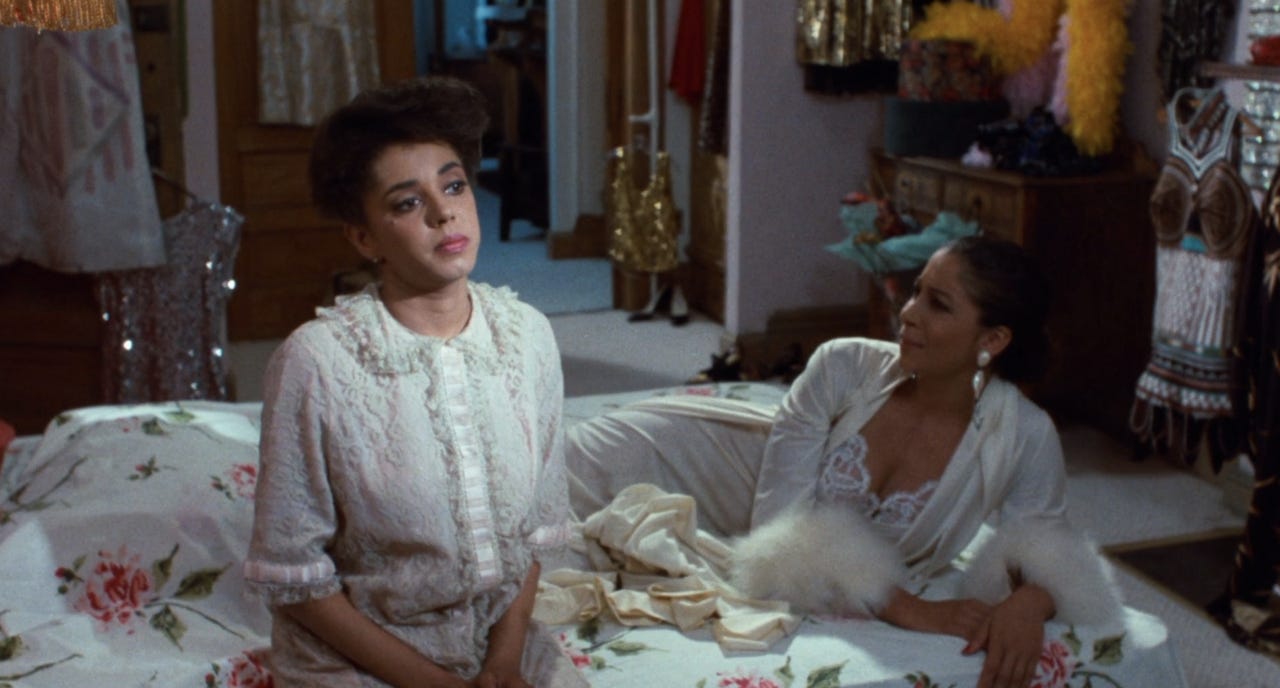
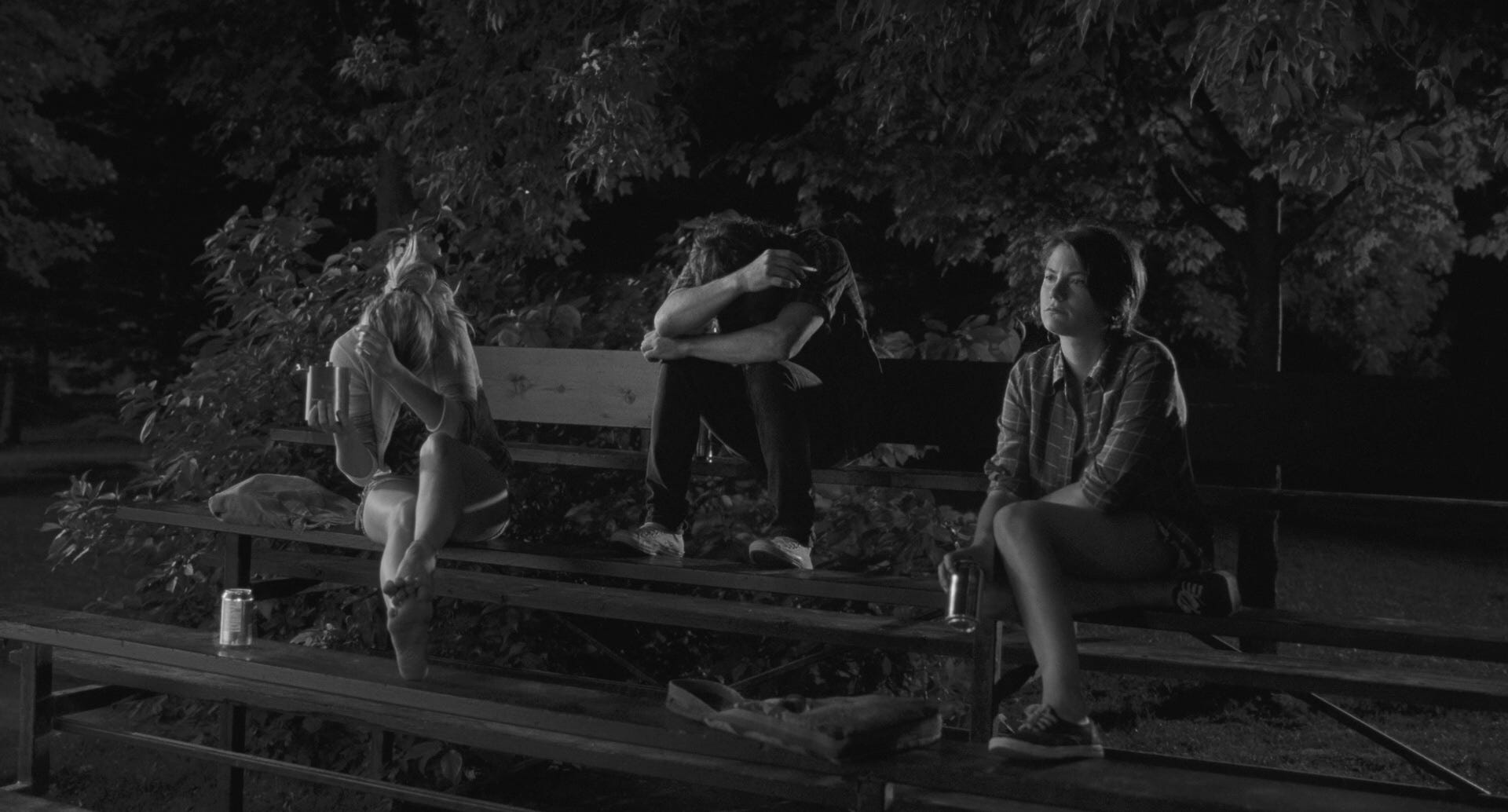
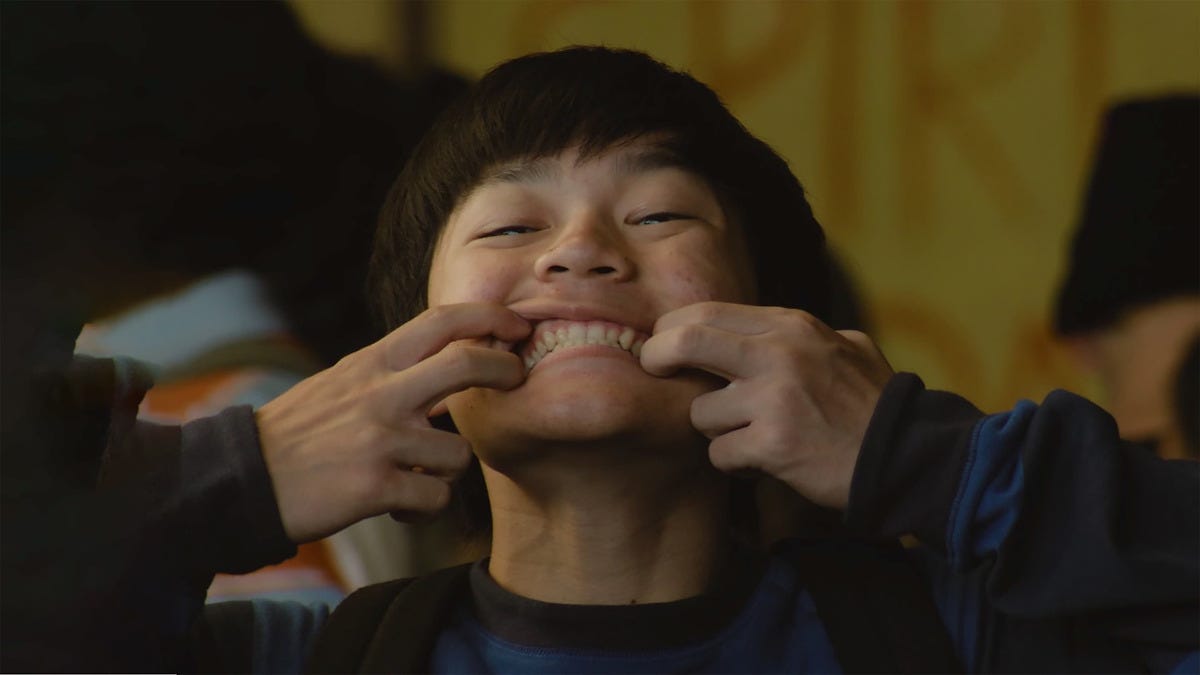



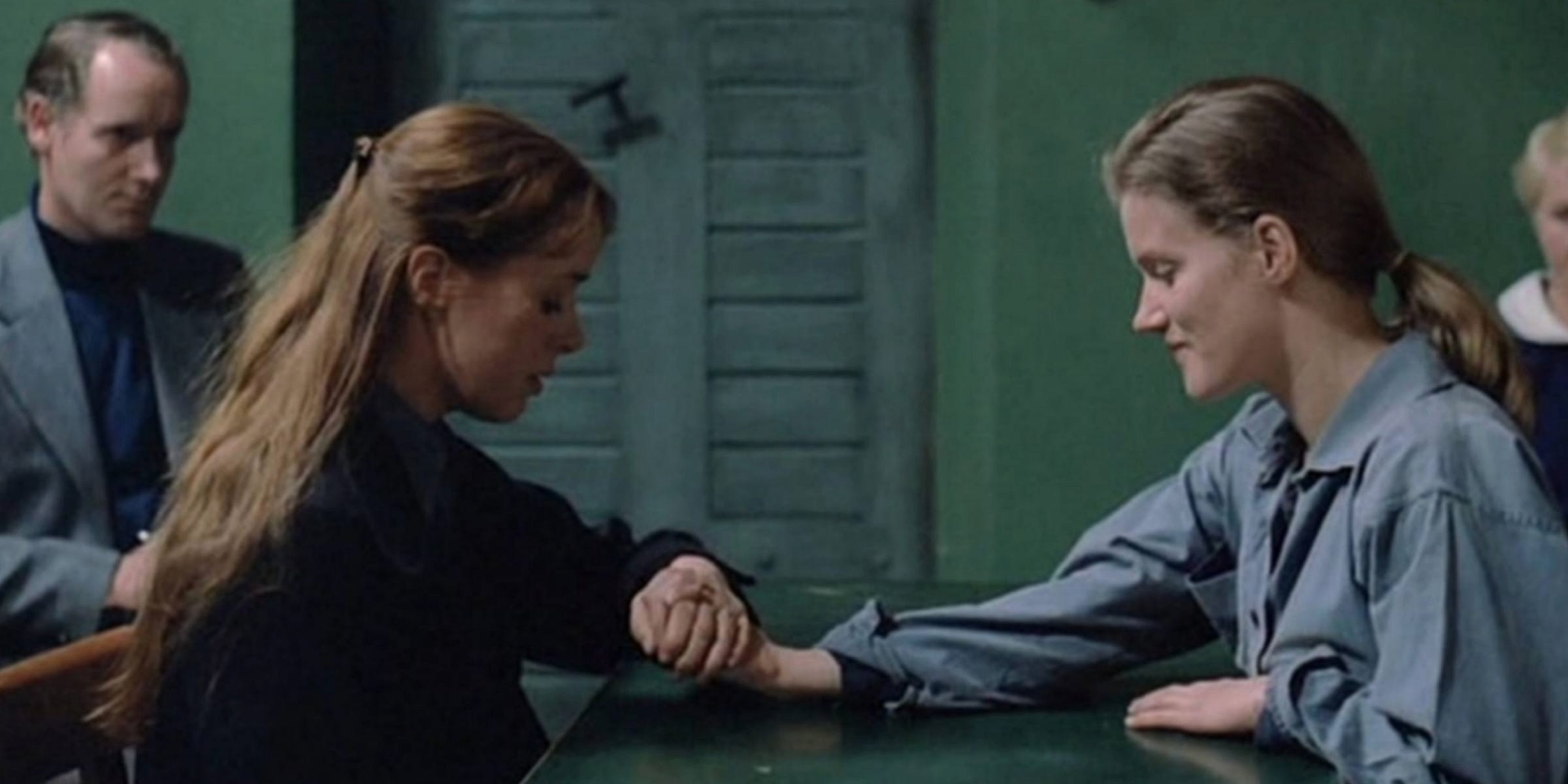
Oooh you might like the movie Amanda, streaming on criterion